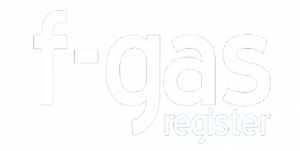News: EPBD and EED Proposals Watered Down - Quidos Response
On 26th June 2017, EU energy ministers agreed on a General Approach for the Energy Performance of Buildings Directive (EPBD) and the Energy Efficiency Directive (EED). The widely feared watering down of the original proposals has happened with ministers backing down from any further ambition for energy efficiency and buildings. EU Member States have now failed to put in place the legal framework to support their existing commitments under the Paris Climate Agreement and have reneged on their responsibility to take a global leadership position.
Quidos regrets this outcome, and we will continue to work closely with the government to ensure that the final directives reflect the level of ambition needed for the EU to be a clean energy leader.
Making significant improvements in energy efficiency across all sectors of our economies is key to achieving a low carbon economy in a cost-effective way and doing so will boost jobs and economic growth. A high energy efficiency target also increases energy security and eases the effort needed to achieve targets for renewable energy.
Although Member States confirmed the 30% energy efficiency headline target for 2030, they postponed a decision on whether to make it binding. Further on, the Council significantly diluted the energy saving obligation requirements set out in Article 7, creating significant uncertainty for businesses and investors in energy efficiency. In reality, this result makes investment in energy efficiency, and the energy transition in general, more expensive.
The Council’s position on the EPBD cuts off huge energy savings potentials that lie in buildings. The requirements for long-term renovation strategies means that they will remain largely a paper exercise. Summing up the disappointment felt within Quidos, Philip Salaman said: “It’s as if the EU Member States have given up on their ambition for energy efficiency. Investment opportunities will dry up, and eventually the EPBD agenda will be snuffed out.”
Energy efficient and smart buildings can deliver affordable energy and comfort for citizens as well as driving innovation and ensuring competitiveness for EU businesses. The text of the General Agreement on the EPBD contains provisions such as the introduction of adequate information as an alternative to inspections of buildings, which will open the door for Member States to simply do nothing to improve the energy performance of buildings.
Quidos now looks to the European Parliament and calls on MEPs to adopt positions on the EPBD and the EED that does justice to Europe’s international commitment and its ambition to create an innovative low-carbon economy.
“”Quidos provided an excellent training course. It certainly helped that the trainer delivered everything I needed to know in a clear and professional way. J. Bailey“




